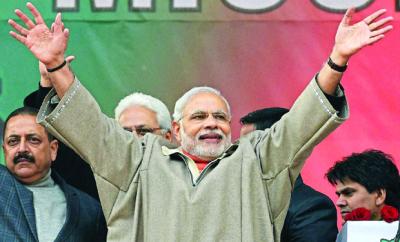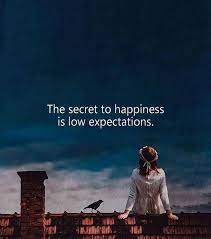The great leap ideologically is to get the public to accept that constitutional prerogatives and the national interest are not always the same.
By: Badri Raina
Please recall that Gujarat 2002 came to be captioned “the laboratory of Hindutva politics”.
In that first phase, the idea of the newly-forged, doctrinal right-wing under the leadership of the RSS pracharak par-excellence, namely, Narendra Modi, was to make it known that the primary ownership of the nation belonged to Hindus.
No official or informal stratagem was spared to make that felt on the Muslims of Gujarat, and, by extension, of the country.
The more flamboyant expression of that assertion was to come in 2014 when Modi, now prime minister, prostrated famously at the entrance to the houses of parliament to the accompaniment of the utterance that India had won freedom after some ‘1,200 years’.
No explication needed there.
Events since the dissolution of the erstwhile Jammu and Kashmir assembly in 2018 and the reading down of Article 370 in 2019 suggest that a second phase of the laboratory experiment is underway – in that beleaguered territory which has had no elected representatives administering it for five years now.
The ideological nub of that experiment seems clearly to test out the hypothesis that representative governance may not, after all, be essential or indeed desirable to further the glory of the nation.
No more telling example of this than the brazen contempt shown by the Modi dispensation for the electoral mandate enjoyed by the government in the Union territory of Delhi – unprecedented in modern Indian democratic history, with the ruling Aam Aadmi Party obtaining first, in 2015, as many 67, and then, in 2020, a still considerable 62 out of 70 seats in the Delhi assembly.
The Modi government has thought nothing of bringing forward an ordinance to negate the determination of a five-judge constitutional bench of the Supreme Court, to the effect that it is the elected government and not the appointed lieutenant governor who must have control of the appointments and transfers of the bureaucracy if it is to serve the people who have elected it.
In rubbishing the elected government and the Supreme Court’s verdict, the Bonapartist centre has openly defied the sanctity of the democratic principle of representation, besides the findings of the judiciary.
Had the government in Delhi, of course, belonged to the ruling BJP, none of that would have happened.
What better evidence of this than the Modi government’s refusal to disband the BJP government in Manipur which has now crossed all unconscionable limits of anarchy and chaos, with a Union minister of the BJP openly confessing to a complete collapse of governance in the state. Notably, the prime minister was heard delivering his inane “Mann ki Baat” rather than hearing “Manipur ki Baat.”
To wit, the people’s mandate is to be left untouched only if it is in favour of the ruling BJP.
The Jammu & Kashmir experiment
For five concerted years now, the establishment has been propagating the view that the alleged rack and ruin in Jammu and Kashmir over the years has been wrought by successive representative governments.
The National Conference and the People’s Democratic Party (with the Indian National Congress as the instigating devil of Kashmir’s pre and post-Independence history) chiefly, are lambasted for using democracy to “loot” the state and its peoples, and reducing the Hindu-majority province of Jammu to secondary status.
That this read of Kashmir’s modern history is largely fictional is irrelevant.
The larger point sought to be impressed on us is this: that representative government is not inflexibly the principal achievement of people’s struggles against monarchy or autocracies of various definition, be it in Kashmir or elsewhere.
And following from that, why the “national interest” requires jettisoning the principle of representative governance when needed in favour of an empowered, even if un-elected governor, except, as stated above, where the BJP wins an election.
We know of course that the Indian National Congress during its six long decades history in power had on numerous occasions imposed governor’s rule in the state. But here may be the difference: where the Congress tended to see this procedure – authorised by the constitution to meet situations where state governments were, rightly or, mostly, wrongly, failing their constitutional obligations – as an enabling one to tide over a temporary political difficulty, the flavour of central rule in J&K suggests that the RSS/BJP see this measure not just as a necessary evil, but a positive systemic alternative to representative governance.
Unless, of course, the results of representation are guaranteed to favour the chosen saviour of the “national interest”.
Clearly, the experiment seeks to suggest that in this phase of “national development” the people do not need to be asked, but told, with no questions allowed — all to their great advancement.
And, if there be any sections of society or the political class who demur, they cannot but be components of “tool kits” inimical to “national interest.”
The experiment in extenso
The great leap ideologically in all this is to get the public to accept that constitutional prerogatives and the national interest are not always the same.
That established, the whole notion of governance by the people, of the people and for the people stands vanquished as a mere ideological fetish imported from non-indigenous political busybodies. This is why the sengol and the person to whom it was handed are supreme, not the constitution.
If “defunct” political leaders make noises from time to time, chosen spokespersons of Quisling formations, both within a comprador political class and an obliging corporate media, are pressed into service to justify the ways of the little men and women who now rule us.
Mercifully, their exertions cannot fool all of the people all of the time.
It is no secret that the ruling RSS/BJP dispensation finds all, but all non-BJP state governments – with some 40% of the electoral population in agreement as of now – deleterious to “national interests”.
The argument often made is that these governments are uniformly corrupt, ‘Muslim-appeasing’, insufficiently militarist, and often radically freebeist (a timely neologism, I hope?) to the detriment of the nation. Most heinously, these states do not balk from subordinating the grand notion of monochromatic unity to a pluralist federalism.
Most know that the real problem is that these non-BJP governments are, number one, unforgivably non-BJP governments, two, wedded to a decrepit constitutional secularism, three, votaries of peaceful accommodation as between social groups and other nations, and, most grievously, laggards in helping to formally install the cherished Hindu rashtra. So how does the installed right-wing think the sorry situation is to be remedied?
First, by winning the trust of a sufficient percentage of voters in 2024 to once again form a government at the centre that the democratic world may see as “legitimate,” and, then, extending the experiment in Kashmir to states ruled by non-BJP governments on the grounds that those governments, like the discredited ones in J&K, are representative only in name, but, at bottom false to the civilisational sanatan goal of Hindutva hegemony.
The new Karnataka government’s promise of free rations is now being sought to be stymied by a new central order stopping the procurement of FCI grains by state governments.
Stay tuned for what lies ahead.
Badri Raina taught at Delhi University.





